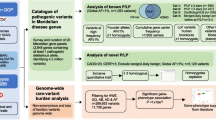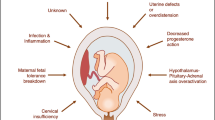Abstract
Protein Z (PZ) deficiency due to anti-PZ autoantibodies and/or mutations in PZgene was linked with adverse pregnancy outcomes, including idiopathic recurrent miscarriage (IRM). We investigated the association of rs3024718, rs3024719, rs3024731, rs3024778, rs3024772, and rs3024735 (G79A) PZ variants and changes in PZ levels in 287 women with IRM, and 308 control women. Of the 6 single nucleotide polymorphisms (SNPs) analyzed, higher minor allele frequency of rs3024735 (G79A) and rs3024731 were seen in IRM cases than in control women. Significantly higher frequencies of rs3024735/G79A G/A and A/A (P< .001), rs3024719 G/A (P= .009), and rs3024731 A/A (P = .012), but not rs3024718 (P= .12), rs3024778 (P = .76), or rs3024772 (P= .27) genotype carriers were seen between IRM cases versus control women, respectively, and was linked with reduced PZ levels. Six-locus (rs3024718/rs3024719/rs3024778/rs3024731/rs3024735/rs3024772) PZhaplotypes analysis demonstrated increased frequency of GAGAAG and AGGTAG and reduced frequency of AGGTGC haplotypes in IRM cases, thereby conferring disease susceptibility and protective nature to these haplotypes, respectively. These results demonstrate that specific PZSNPs and haplotypes are significantly associated with IRM.
Similar content being viewed by others
References
Benedetto C, Marozio L, Tavella AM, Salton L, Grivon S, Di Giampaolo F. Coagulation disorders in pregnancy: acquired and inherited thrombophilias. Ann N Y Acad Sci. 2010;1205:106–117.
Branch DW, Gibson M, Silver RM. Clinical practice. Recurrent miscarriage. N Engl J Med. 2010;363(18):1740–1747.
Marik PE. Venous thromboembolism in pregnancy. Clin Chest Med. 2010;31(4):731–740.
Allison JL, Schust DJ. Recurrent first trimester pregnancy loss: revised definitions and novel causes. Curr Opin Endocrinol Diabetes Obes. 2009;16(6):446–450.
Finan RR, Mustafa FE, Al-Zaman I, Madan S, Issa AA, Almawi WY. STAT3 polymorphisms linked with idiopathic recurrent miscarriages. Am J Reprod Immunol. 2009;63:22–27.
Alijotase-Regi J, Ferrer-Oliveras R, Rodrigo-Anoro MJ, Farran-Codina I, Cabero-Roura L, Vilardell-Tarres M. Anti-β2-glycoprotein-1 and anti-phosphatidylserine antibodies in women with spontaneous pregnancy loss. Fertil Steril. 2010;93(7): 2330–2336.
Becker RC. The importance of factor Xa regulatory pathways in vascular thrombo-resistance: focus on protein Z. J Thrombosis Thrombolysis 2005;19(2):135–137.
Vasse M. Protein Z, a protein seeking a pathology. Thromb Haemost. 2008;100(4):548–556.
Souri M, Lwata H, Zhang WG, Lchinose A. Unique secretion mode of human protein Z: its GIa domain is responsible for inefficient, vitamin K-dependent and warfarin-sensitive secretion. Blood. 2009;113(16):3857–3864.
Han X, Fieher R, Broze GJ Jr. Characterization of the protein Z-dependent protease inhibitor. Blood. 2000;96(9):3049–3055.
Kusanovic JP, Espinoza J, Romero R, et al. Plasma protein concentration in pregnant women with idiopathic intrauterine bleeding and in women with spontaneous preterm labor. J Matern Fetal Neonatal Med. 2007;20(6):453–463.
Sailer T, Vormittag R, Koder S, Quehenberger P, Kaider A, Pabinger I. Clinical significance of anti-protein Z antibodies in patients with lupus anticoagulant. Thromb Res. 2008;122(2): 153–160.
Grandone E, Favuzzi G, Strfano VD, et al. Protein Z g-42a variant and the risk of pregnancy-related venous thromboembolism in a cohort of Italian patients. Thromb Res. 2009;123(6):848–850.
Erez O, Romero R, Vaisbuch E, et al. Maternal anti-protein Z antibodies in pregnancies complicated by pre-eclampsia, SGA and fetal death. J Matern Fetal Neonat Med. 2009;22(8):662–671.
Koren-Michowitz M, Rahimi-Levene N, Volcheck Y, Garach-Jehoshua O, Kornberg A. Protein Z and its role in venous and arterial thrombosis. Isr Med Assoc J. 2006;8(1):53–55.
Erez O, Hoppensteadt D, Romero R, et al. Preeclampsia is associated with low concentration of protein Z. J Matern Fetal Neonatal Med. 2007;20(9):661–667.
Quack Loetscher KC, Stiller R, Roos M, Zimmermann R. Protein Z in normal pregnancy. Thromb Haemost. 2005;93(4):706–709.
Dossenbach-Glaninger A, van Trotsenburg M, Helmer H, Oberkanins C, Hopmeier P. Association of the protein Z intron F G79A gene polymorphism with recurrent pregnancy loss. Fertil Steril. 2008;90(4):1155–1160.
Lichy C, Kropp S, Si TD, et al. A common polymorphism of the protein Z gene is associated with protein Z plasma levels and with risk of cerebral ischemia in the young. J Am Heart Assoc. 2004; 35:40–45.
Grandone E, Colaizzo D, Cappucci F, Cocomazzi N, Margaglione M. Protein Z levels and unexplained fetal losses. Fertil Steril. 2004;82(4):982–983.
Sater MS, Finan RR, Al-Hammad SA, Mohammed FA, Issa AA, Almawi WY. High frequency of anti-protein Z IgM and IgG autoantibodies in women with idiopathic recurrent spontaneous miscarriage. Am J Reprod Immunol. 2011;65(5):526–531.
McQuillan AM, Eikelboom JW, Hankey GJ, et al. Protein Z in ischemic stroke and its etiologic subtypes. Stroke. 2003;34(10): 2415–2419.
Gris JC, Quere I, Dechaud H, et al. High frequency of protein Z deficiency in patients with unexplained early fetal loss. Blood. 2002;99(7):2606–2608.
Paidas MJ, Ku DH, Lee MJ, et al. Protein Z, protein S levels are lower in patients with thrombophilia and subsequent pregnancy complications. J Thromb Haemost. 2005;3(3):497–501.
Topalidou M, Effraimidou S, Farmakiotis D, et al. Low protein Z levels, but not intron F G79A polymorphism, are associated with unexplained pregnancy loss. Thromb Res. 2009;124(1):24–27.
El-Hamid SA, El-Khayat W. Relationship of the Protein Z Intron F G79A and IL6 C634G gene polymorphisms with the risk of recurrent pregnancy loss in Egyptian women. J Investig Med. 2011;59(4):655–660.
Forastiero RR, Martinuzzo ME, Lu L, Broze GJ. Autoimmune antiphospholipid antibodies impair the inhibition of activated factor X by protein Z/protein Z-dependent protease inhibitor. J Thromb Haemost. 2003;1(8):1764–1770.
Rice GI, Futers TS, Grant PJ. Identification of novel polymorphisms within the protein Z gene, haplotype distribution and linkage analysis. Thromb Haemost. 2001;85(6):1123–1124.
Nowak-Göttl U, Fröhlich B, Thedieck S, Huge A, Stoll M. Association of the protein Z ATG haplotype with symptomatic nonvascular stroke or thromboembolism in white children: a family-based cohort study. Blood. 2009;113(10):2336–2341.
Santacroce R, Cappucci F, Di Perna P, Sessa F, Margaglione M. Protein Z gene polymorphisms are associated with protein Z plasma levels. J Thromb Haemost. 2004;2(7):1197–1199.
Effraimidou S, Farmakiotis D, Topalidou M. Protein Z levels and recurrent pregnancy loss. Fertil Steril. 2009;91(5):e27.
Gris JC, Amadio C, Mercier E, et al. Anti-protein Z antibodies in women with pathologic pregnancies. Blood. 2003;101(12): 4850–4852.
Le Cam-Duchez V, Soria C, Dit Sollier CB, et al. Rare genotypes of protein Z gene are a risk factor for premature myocardial infarction but not protein Z plasma level. Thromb Haemost. 2009;102(1):131–136.
Van Goor MPJ, Dippel DWJ, Jie KSG, De Maat MPM, Koudstaal PJ, Leebeek FWG. Low protein Z levels but not protein Z gene G79A polymorphism are a risk for ischemic stroke. Thromb Res. 2008;123(2):213–218.
Le Cam-Duchez V, Barbay V, Soria C, Borg JY. Protein Z, polymorphisms in the protein Z gene and thrombosis. Rev Med Interne. 2010;31(8):551–557.
Hansen AT, Andreasen BH, Salvig JD, Hvas AM. Changes in fibrin D-dimer, fibrinogen, and protein S during pregnancy. Scand J Clin Lab Invest. 2011;71(2):173–176.
Mahieu B, Jacobs N, Mahieu S, et al. Haemostatic changes and acquired activated protein C resistance in normal pregnancy. Blood Coagul Fibrinolysis. 2007;18(7):685–688.
Grimes DA, Schulz KF. False alarm and pseudo-epidemics. The limitations of observational epidemiology. Obstet Gynecol. 2012;120(4):920–927.
Author information
Authors and Affiliations
Corresponding author
Rights and permissions
About this article
Cite this article
Al-Shaikh, F.S., Sater, M.S., Finan, R.R. et al. Protein Z Variants Associated With Protein Z Plasma Levels and With Risk of Idiopathic Recurrent Miscarriage. Reprod. Sci. 20, 1062–1068 (2013). https://doi.org/10.1177/1933719112473659
Published:
Issue Date:
DOI: https://doi.org/10.1177/1933719112473659




